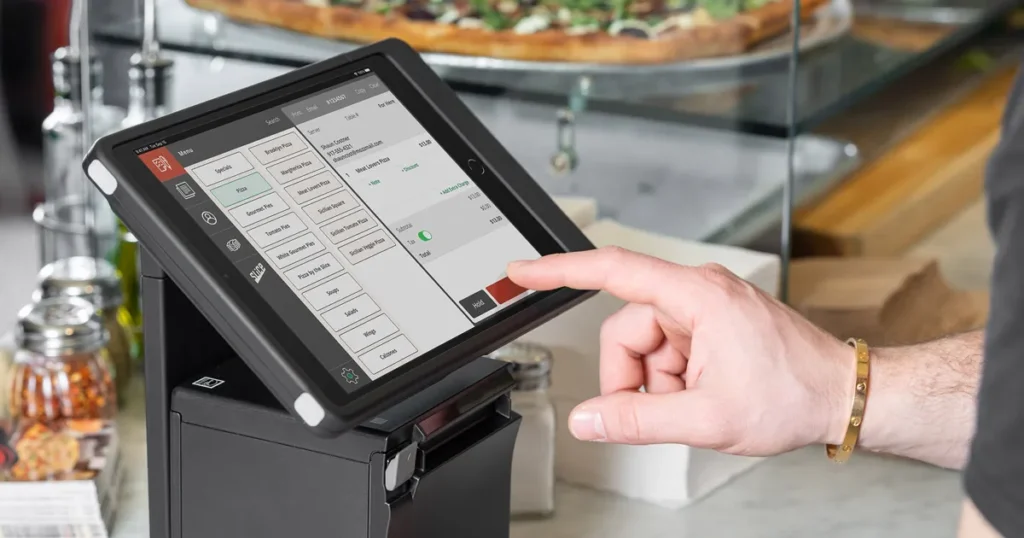How POS Systems Solve Inventory Headaches

Managing inventory can be one of the most challenging aspects of running a business. Whether you operate a retail store, restaurant, or e-commerce business, keeping track of stock levels, understanding demand trends, and avoiding overstock or shortages can feel overwhelming. Fortunately, Point of Sale (POS) systems are a game changer when it comes to solving these inventory headaches. Here’s how these powerful tools simplify inventory management and improve operational efficiency.
Real-Time Inventory Tracking
One of the most significant benefits of modern POS systems is real-time inventory tracking. Traditional inventory management often involves manual counts and updating spreadsheets—a time-consuming and error-prone process. POS systems automatically update your inventory levels whenever a sale is made, ensuring you have an accurate count of your stock at all times.
Real-time tracking helps businesses quickly identify low-stock items and restock before running out. It also reduces the risk of over-ordering, which can lead to unnecessary costs and wasted resources.
Centralized Data Management
For businesses with multiple locations or online stores, managing inventory across platforms can be complex. POS systems simplify this by centralizing all inventory data in one platform. You can monitor stock levels across all locations, transfer items between stores, and sync with your e-commerce platform to ensure consistency.
This centralized approach reduces discrepancies and ensures that customers, whether in-store or online, always see accurate product availability.
Streamlined Restocking Process
A good POS system can automate the restocking process, saving you time and effort. For example, some systems allow you to set reorder thresholds for each product. When stock levels fall below the specified limit, the system can generate purchase orders automatically, notifying your suppliers of the need for replenishment.
This automation not only prevents stockouts but also improves relationships with suppliers by streamlining the order process and ensuring timely communication.
Accurate Sales Forecasting
Inventory management isn’t just about knowing how much stock you have—it’s also about predicting future demand. POS systems leverage historical sales data to help you anticipate trends, identify your best-selling products, and plan for seasonal fluctuations.
With this data, you can make informed purchasing decisions, reducing the risk of overstocking or understocking. For example, a retail store preparing for the holiday season can use sales data from previous years to estimate how much inventory to order.
Minimized Losses from Shrinkage
Shrinkage due to theft, mismanagement, or human error is a common inventory headache. POS systems help reduce these losses by tracking every transaction and movement of stock. You can generate detailed reports to identify discrepancies, pinpoint where shrinkage is happening, and take corrective action.
Additionally, integrating your POS system with security measures, such as barcoding or RFID technology, further enhances inventory control and reduces the risk of theft or fraud.
Improved Employee Accountability
POS systems also improve inventory accuracy by holding employees accountable. With user-specific logins, you can track who is making changes to inventory, processing returns, or handling refunds. This visibility reduces errors and creates a culture of responsibility within your team.
For instance, if inventory levels don’t match sales records, the system can highlight specific transactions for review, helping you identify where the issue occurred.
Enhanced Customer Experience
A well-managed inventory directly impacts customer satisfaction. A POS system ensures that your business always knows what’s in stock, reducing the chances of disappointing customers with out-of-stock items.
Moreover, many POS systems allow businesses to manage special orders or backorders seamlessly, ensuring that customers can still get what they need, even if it’s not immediately available.
Integration with Other Business Tools
Modern POS systems often integrate with other business tools, such as accounting software, CRM platforms, and supply chain management systems. These integrations provide a holistic view of your operations, ensuring inventory management works seamlessly with other aspects of your business.
For example, integrating your POS system with accounting software can help you calculate the cost of goods sold (COGS) more accurately, giving you better insight into your profit margins.
The Bottom Line
Inventory headaches are a thing of the past with the right POS system. From real-time tracking and automated restocking to detailed reporting and sales forecasting, these tools empower businesses to manage inventory with precision and ease.
Investing in a POS system is not just about streamlining operations—it’s about positioning your business for long-term success. By eliminating inventory headaches, you can focus on what truly matters: delivering exceptional products and services to your customers.
Whether you’re a small business owner or managing a large enterprise, upgrading to a modern POS system could be the smartest move you make for your inventory management strategy.






